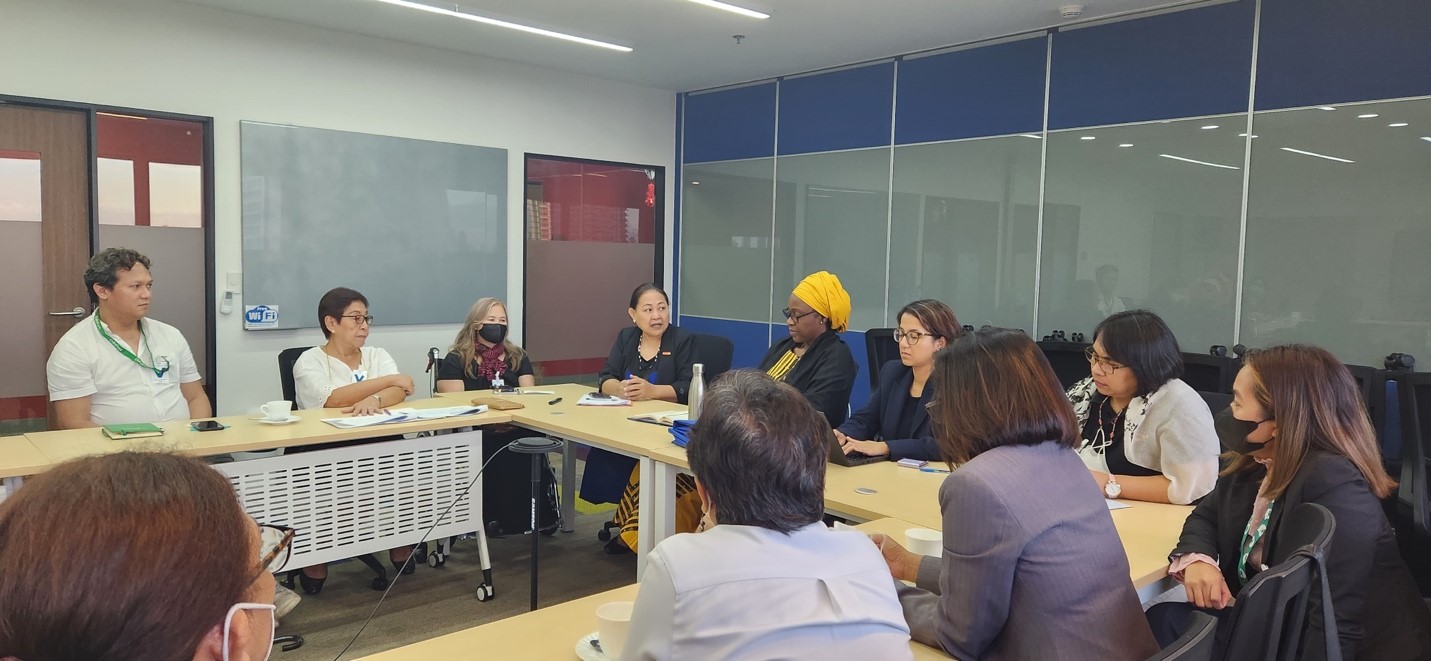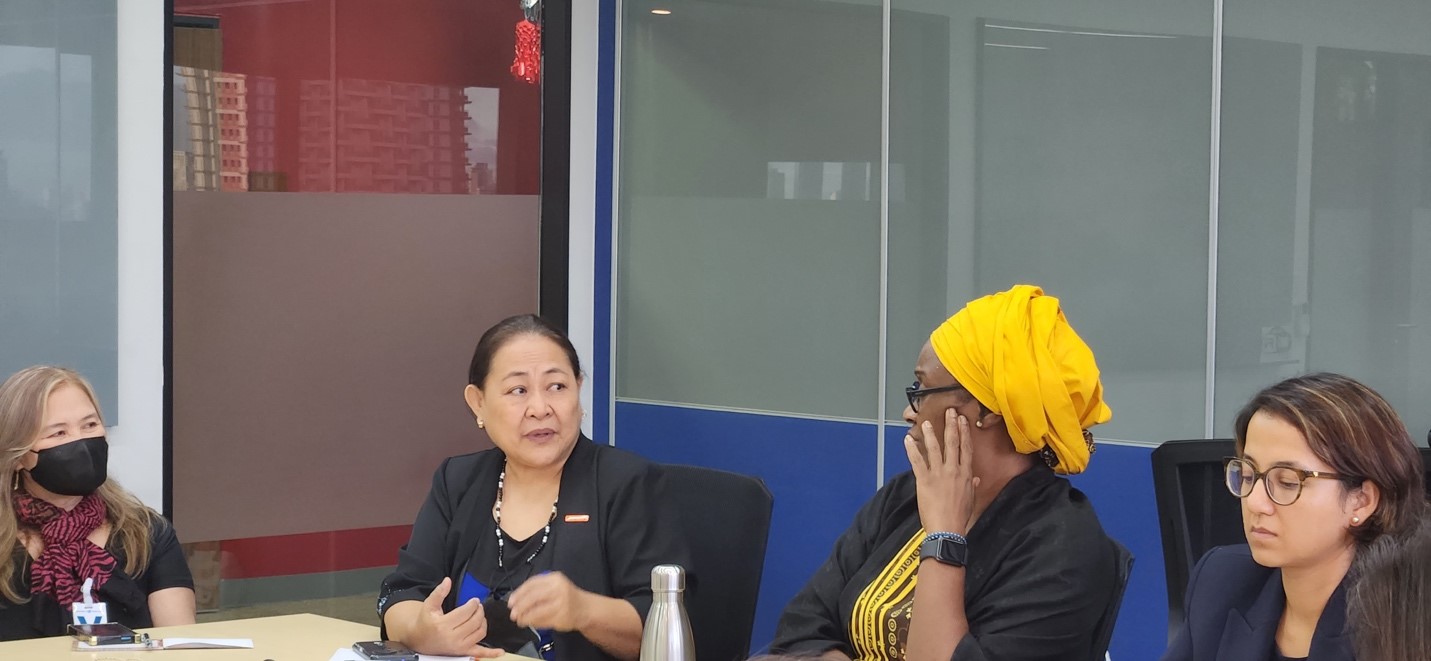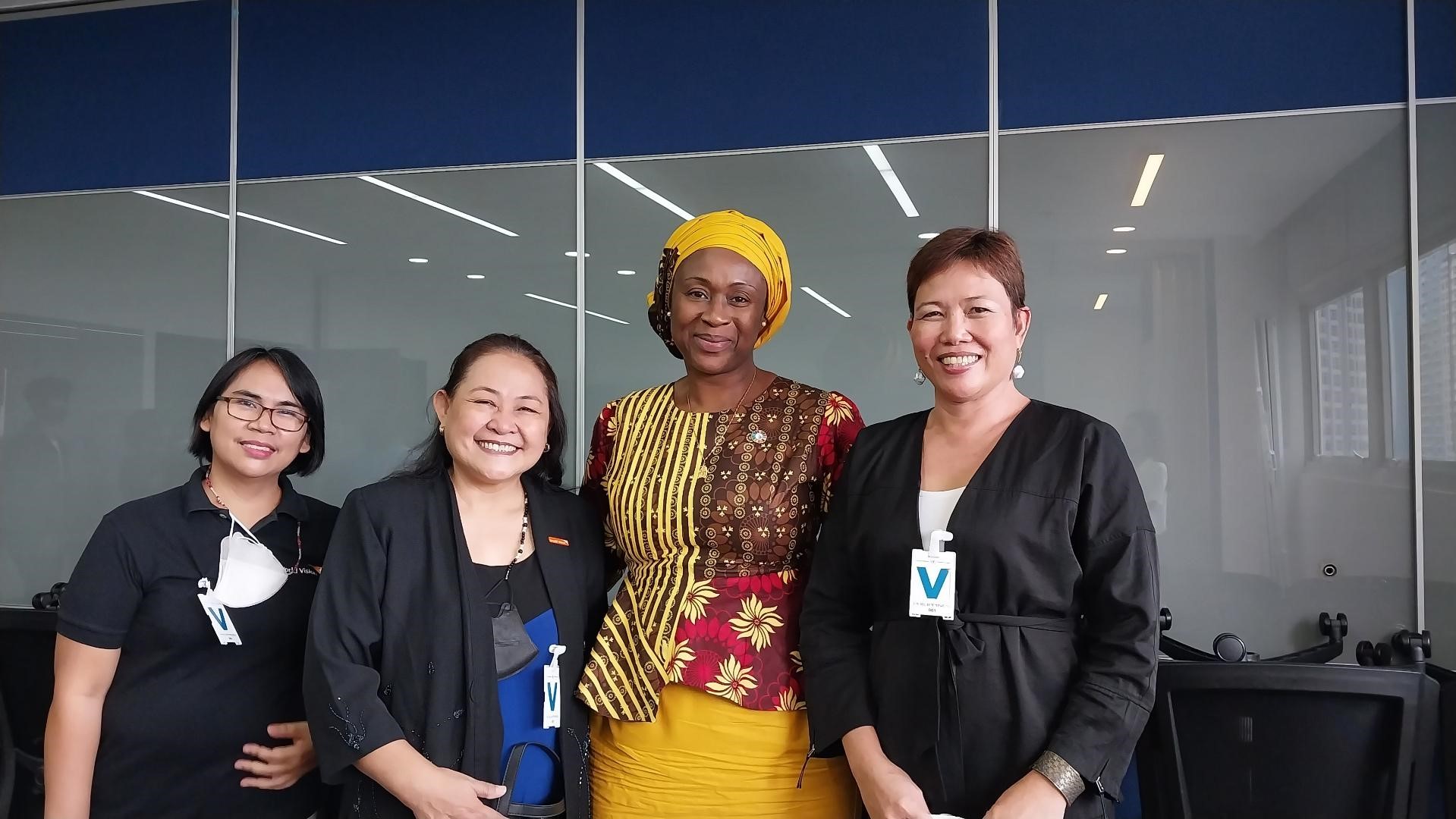Project ACE, other child-focused organizations, meet with UN Special Rapporteur to discuss OSAEC situationer

Last November 30, 2022, World Vision’s Project Against Child Exploitation or Project ACE joined other child-focused agencies and civil society organizations (CSOs) in a meeting with the visiting United Nations (UN) Special Rapporteur, Ms. Mama Fatima Singhateh, to discuss the Philippine situationer and the progress made in combating and preventing the sale and sexual exploitation of children in the country. The alarming increase in online sexual abuse and exploitation of children (OSAEC) has become evident since the imposition of pandemic-related lockdowns and community quarantine in 2020. The Department of Justice (DOJ) reported that they received 202,605 cyber tips between March 1 to May 24, 2020 – which is a 264% increase from the previous year.
Prior to the meeting, Project ACE drafted an impact report of the collective efforts of stakeholders in reducing and preventing the worst forms of child labor including OSAEC. The report highlighted the improved enforcement of the legal framework, provision of assistance services by the government for victims, and strengthened partnerships through joint statements, convergence plans, and shared information. Documented intiatives in Quezon City and Cagayan De Oro City, where Project ACE is currently implemented, were also cited in the report.

The team also ensured the active participation of children by encouraging and capturing the “voices of youth and children” in a document that was later submitted to CRC Coalition. Child representatives from Quezon City shared their experiences as young advocates pushing for the protection of children.
Sophia and Ria, both active child leaders, applaud the efforts of non-government organizations which conducted seminars and raised awareness to underscore the government’s critical role to provide transparent reports and timely actions on the said issue. The youth also raised their concerns on the lack of awareness of children on certain child protection issues particularly on the importance of sex education in schools. They suggested that curriculums at the elementary level should have age-appropriate sex education in biology classes in order to slowly introduce issues such as OSAEC. One of their main recommendations is for the government to enhance its cybersecurity by also working with experts in the private sector. They also emphasized that perpetrators of sexual abuse towards children should be held accountable for their actions, as justice is important for them.
Project ACE’s Daphne Culanag presented the context, gaps and recommendations on behalf of the Child Rights Network. She noted that one of the main causes of child sale and OSAEC is poverty, thus the need to focus on relevant social protection programs to serve as safety net especially for the poor families and the marginalized. Other highlighted efforts and initiatives of the CSOs in the report included awareness-building, child participation, capacity building for stakeholders, strengthening of child protection system, social media, campaigns, case studies, and legislative advocacies which later on led to the successful enactment of RA 11930.
Aside from OSAEC, the attendees also discussed about the issues on child trafficking, child marriage, inclusivity, and children with disabilities. Key recommendations included empowerment of local government units towards a more evidence-based child programming, stronger implementation of laws, increased appropriation for programs and policies, and strengthened capacities, institutions, and coordination of work among working groups and councils.

Project ACE’s Antonia Salamat and Erlinda Alejaga also attended to support the child representatives in an earlier discussion with the UN Special Rapporteur.








